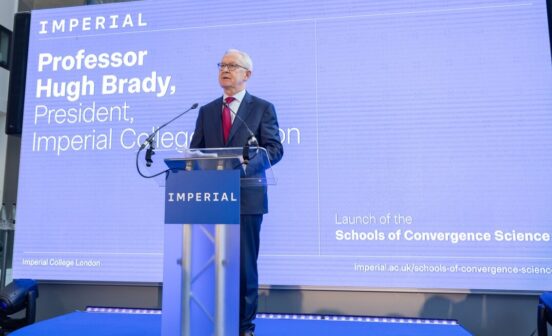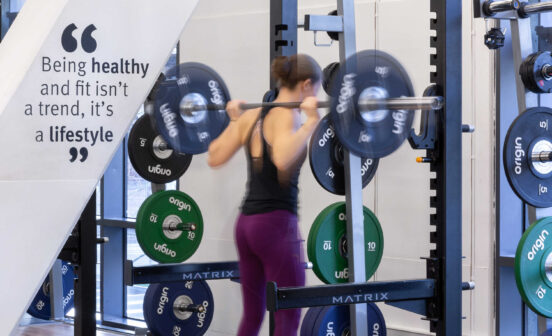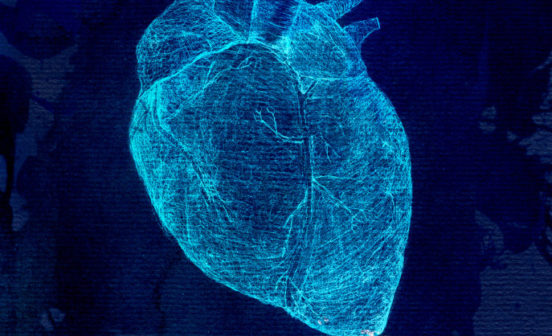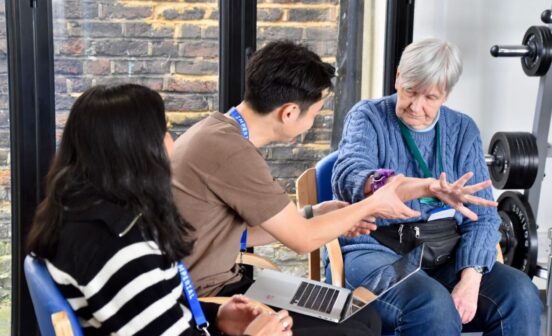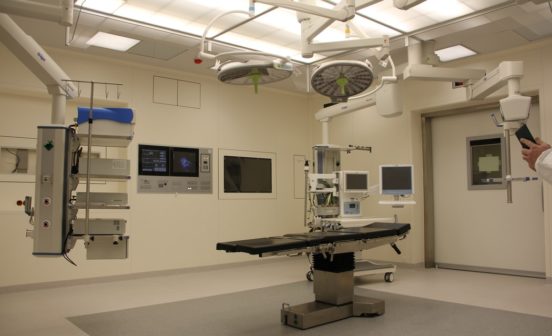Event Ukraine’s First Lady and Akshata Murty visit Paediatric Blast Injury Centre
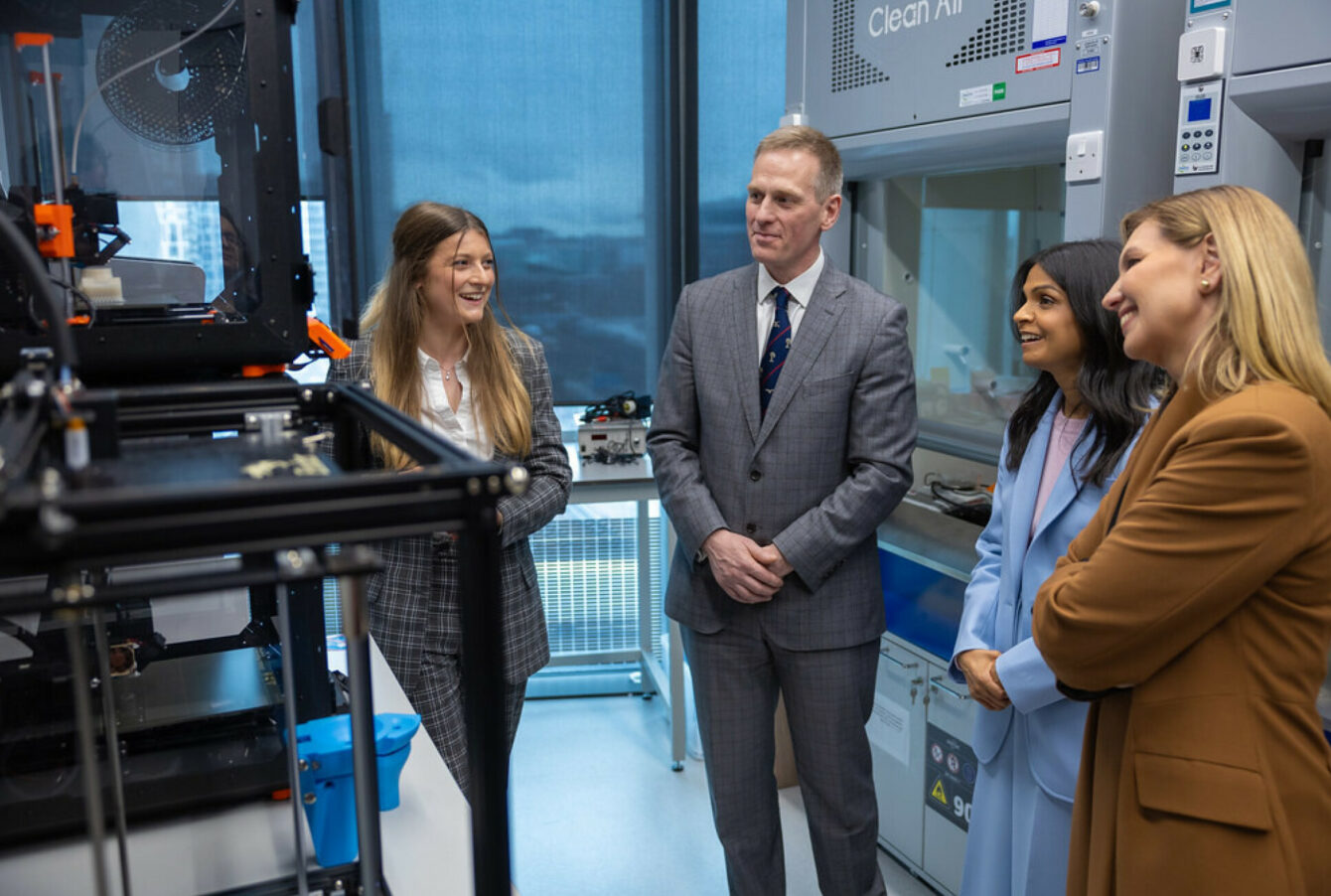
First Lady of Ukraine Olena Zelenska and the Prime Minister’s wife Akshata Murty toured the Centre, which is the world’s first research hub dedicated to studying and providing lifesaving innovations to children injured by explosive weapons.
Children are seven times more likely to die from blast injuries than adults. They tend to experience different types of injuries than adults and require specialist care that accounts for their physiology and growth. However, research on the best ways to treat child-specific blast injuries lags far behind research for injured adults.
To address this need, the Centre is driving new research and innovations to meet the clinical needs of children with blast injuries. It does this by bringing together medics, engineers, pain specialists, operational humanitarians and prosthetics and rehabilitation experts.
During the visit, Mrs Zelenska and Mrs Murty met Centre Director Professor Anthony Bull, medical historian Dr Emily Mayhew, and PhD candidates Claudia Ghidini, Caitlin Edgar, and Sumudith Jayasuriya, who explained their work to understand the biomechanics of blast on the child, emergency medical needs, rehabilitation, and surgical and rehabilitation technology.
Claudia is a second-year PhD researcher working to assess the interplay between physical growth and prosthetic provision and design for children with lower-limb loss to improve design and reduce clinical burden. Caitlin is a third-year PhD researcher focusing on the development of an affordable prosthetic knee joint that supports growth and development throughout childhood for children in low-resourced environments (such as conflict and post-conflict zones). Sumudith is a first-year PhD researcher whose project aims to study the effect of physical trauma on bone growth in children, and how growth post-trauma is mechanically mediated.
Mrs Zelenska and Mrs Murty watched demonstrations of motion capture technology that analyses the movements of people using prosthetic limbs to see and test how prosthetics can be improved and also provides feedback using immersive virtual reality for better rehabilitation.
They also saw facilities that are used in the development of appropriate and affordable healthcare technologies, including 3D printers which can be used to quickly prototype new design iterations.
The visit marks nearly one year after the launch of the Centre in March 2023. Since the Centre opened, a unique study has been completed in Cambodia to give children with lower limb loss a voice to call for the changes in prosthetic design they want to see. This work used a novel questionnaire methodology which will be released open source in the coming months to allow more children to have their say.
Additionally, a motion capture study will shortly begin in partnership with the Royal National Orthopaedic Hospital marking the start of a new phase for the Centre. Further collaborations with the Cukurova University clinics in Türkiye have been established to continue the expansion of key stakeholders within the Centre.
Professor Bull, from Imperial’s Department of Bioengineering, said: “Since launching the Centre nearly a year ago, the team has grown and the work has continued apace. We have expanded our network of collaborators and have started new studies. We have been privileged to be able to participate in the National Rehabilitation Conferences in Ukraine and the use of the Paediatric Blast Injury Field Manual has expanded dramatically. Our motivation for this work has deepened and strengthened and we want to continue to address the most important questions that are not being answered elsewhere.
“We are honoured and proud to have hosted Mrs Zelenska and Mrs Murty, and to have been able to show them that we are working towards trying to improve the lives of children so cruelly injured in conflict around the world.”
Like Imperial’s pioneering adult-focussed Centre for Blast Injury Studies, which was opened by HRH Prince Harry in 2013, the child-focussed Centre translates research into direct applications that address children’s clinical needs.
Although informed by the work in adults, the Centre takes a new approach driven by the needs of children – a patient group with a more complex set of challenges because of their developing physiology and ongoing growth.
The Centre for Paediatric Blast Injury Studies is funded by Save the Children.

